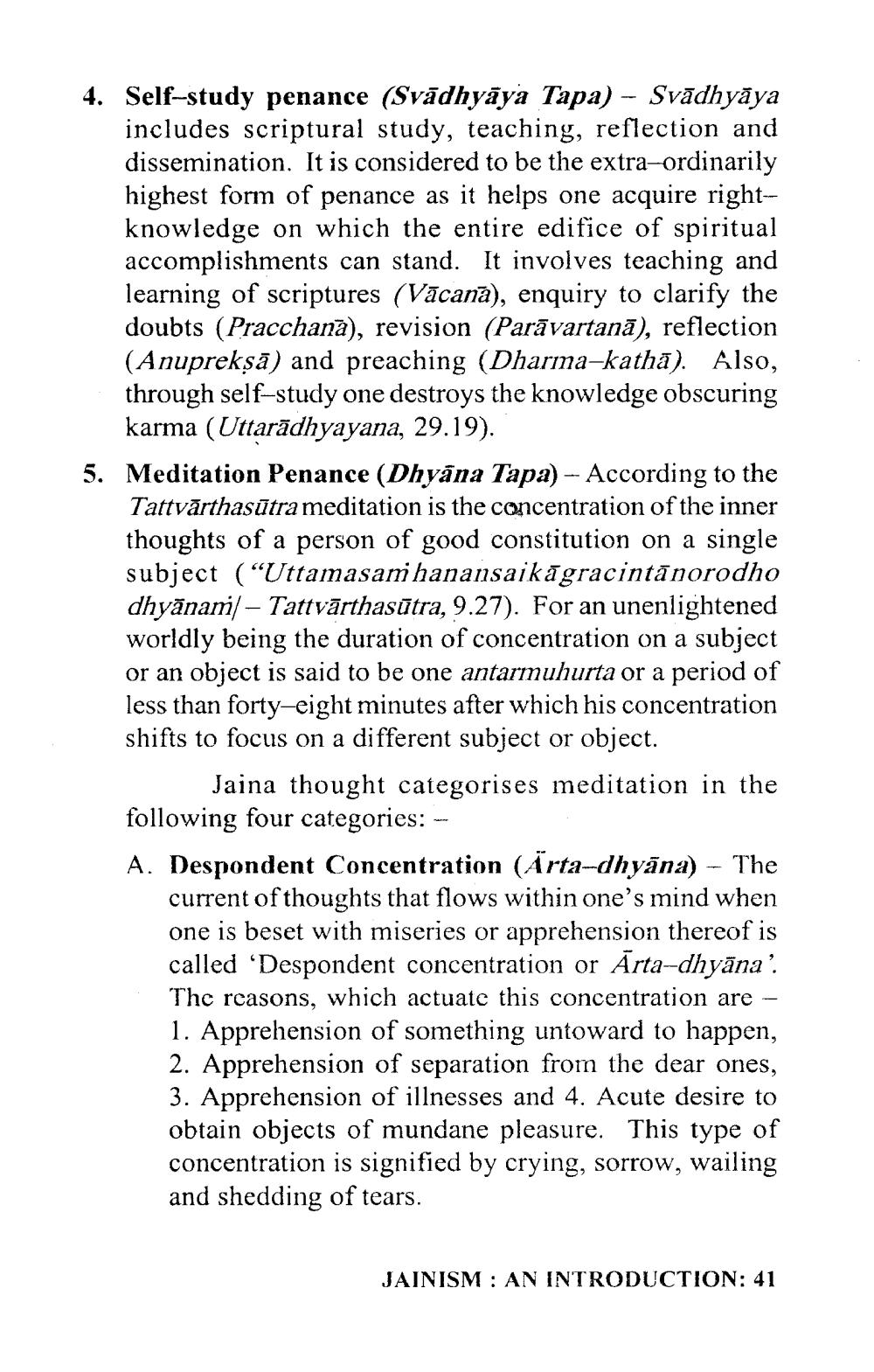________________
4. Self-study penance (Svādhyāya Tapa) – Svādhyāya includes scriptural study, teaching, reflection and dissemination. It is considered to be the extra-ordinarily highest form of penance as it helps one acquire rightknowledge on which the entire edifice of spiritual accomplishments can stand. It involves teaching and learning of scriptures (Vācana), enquiry to clarify the doubts (Pracchana), revision (Parāvartanā), reflection (Anuprekṣā) and preaching (Dharma-kathā). Also, through self-study one destroys the knowledge obscuring karma (Uttaradhyayana, 29.19).
5. Meditation Penance (Dhyana Tapa) - According to the Tattvārthasūtra meditation is the concentration of the inner thoughts of a person of good constitution on a single subject ("Uttamasam hanansaikāgracintānorodho dhyānam - Tattvärthasūtra, 9.27). For an unenlightened worldly being the duration of concentration on a subject or an object is said to be one antarmuhurta or a period of less than forty-eight minutes after which his concentration shifts to focus on a different subject or object.
Jaina thought categorises meditation in the following four categories: -
A. Despondent Concentration (Ärta-dhyāna) – The current of thoughts that flows within one's mind when one is beset with miseries or apprehension thereof is called 'Despondent concentration or Ārta-dhyāna'. The reasons, which actuate this concentration are - 1. Apprehension of something untoward to happen, 2. Apprehension of separation from the dear ones, 3. Apprehension of illnesses and 4. Acute desire to obtain objects of mundane pleasure. This type of concentration is signified by crying, sorrow, wailing and shedding of tears.
JAINISM: AN INTRODUCTION: 41




